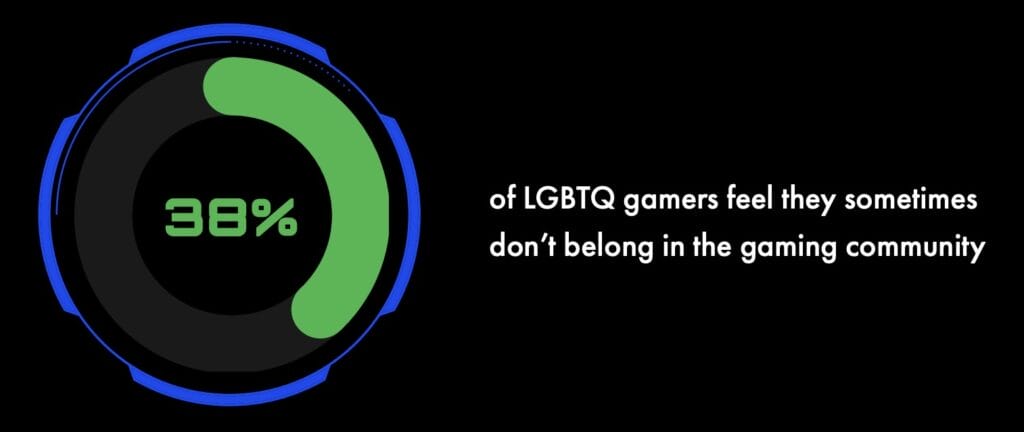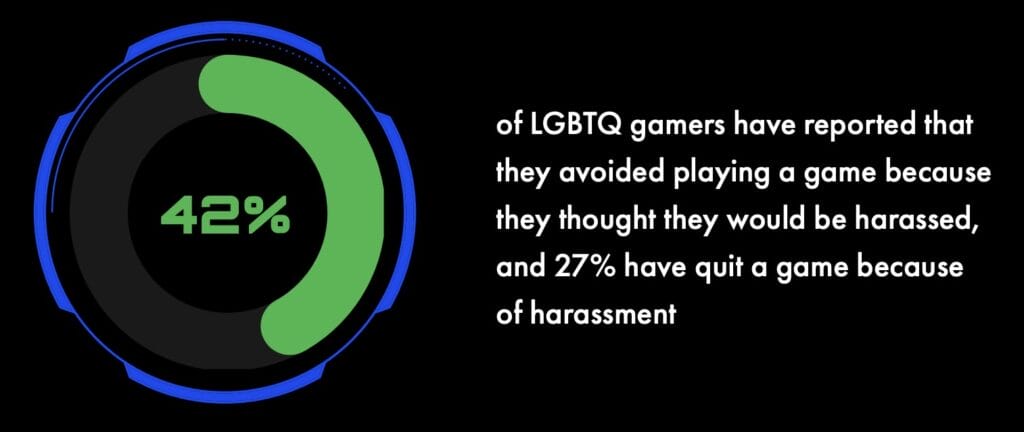Gaming Provides a Social Outlet but Harassment Concerns Remain
LGBTQ gamers are much less likely than non-LGBTQ gamers to feel welcomed within the gaming community. Over half (52%) feel the gaming community is welcoming to people like them, but 38% sometimes feel like they don’t belong. In contrast, 59% of non-LGBTQ gamers feel welcome, and only 24% sometimes feel like they don’t belong.
This is very likely due to harassment. 52% of LGBTQ gamers report experiencing harassment while playing online, compared to 38% of non-LGBTQ gamers. 42% of LGBTQ gamers report that they have avoided playing a game because they thought they would be harassed, and 27% have quit a game because of harassment.
LGBTQ gamers also recount feeling more uncomfortable using voice chat in online games (61%), compared to non-LGBTQ gamers (40%). Although a greater percentage of LGBTQ gamers (62%) say experiencing harassment makes them want to play less, 40% of non-LGBTQ gamers say the same thing. And 20% of non-LGBTQ gamers have avoided playing a game if they thought they’d be harassed.
Gaming is an important social outlet for LGBTQ gamers. 71% say they have friends they can game with, and 63% wish they had more friends they could play or talk about games with. 35% of LGBTQ gamers feel that gaming is their only outlet for socializing with other people, compared to 28% of non-LGBTQ gamers.
Half (50%) of LGBTQ gamers say that they feel more accepted by the gaming community than they do where they live, and that goes up to 55% for those residents of states that have proposed or passed anti-LGBTQ legislation. Over half (51%) of LGBTQ residents of those states report feeling stress or anxiety when thinking about the level of LGBTQ acceptance around them, compared to 45% of LGBTQ gamers overall.














